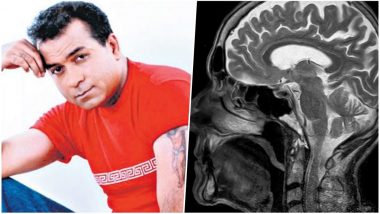Mumbai has witnessed its fair share of casualties and in recent news, the unfortunate demise of 90’s remix singer Nitin Bali. Bali was injured after his car rammed a divider, he was taken to a hospital where he received emergency aid for facial injuries and was later discharged. However, his condition took a drastic turn; he vomited blood at his residence. Even though he was rushed to the hospital once again, he succumbed to undiagnosed injuries from the road traffic accident (RTA), as his blood pressure and heart rate dropped. Nitin Bali, Neele Neele Amber Par Remix Singer Dies at 47.
Medical experts have in the past stressed on the fact that a full-fledged medical examination must be conducted post an RTA. Many times, Emergency Response Teams receive accident victims who have survived without a scratch but did not seek medical aid immediately. Unfortunately, these patients seek intervention when it’s too late. Post-accident, one must be subjected to thorough medical examination and necessary investigations. After any kind of accident, even if a person has no visible external injuries, they may have suffered severe injuries to internal organs due to the impact of the accident, which can subsequently lead to death, if not diagnosed and treated on time.
One must seek medical help if the following symptoms show after an accident
- A headache, vomiting, dizziness, transient loss of consciousness, convulsions, and nasal & ear bleed which are indicators for traumatic brain injuries
- Persistent neck or back pain with numbness or weakness in limbs could indicate Spine injuries
- Chest pain and breathlessness could indicate blunt trauma
- Concussions may lead to Emotional Distress which includes Posttraumatic Stress Disorder (PTSD)
Here are some other important factors to keep in mind post a traumatic road accident to avoid any dangerous or fatal outcomes:
- The topmost priority is to see a doctor right away post a motor vehicle accident, irrespective of its severity
- The body goes on high alert post an accident. You may feel nervous, scared or even face hyperactivity; this is the body experiencing an adrenaline rush. This rush causes you do not experience any pain at that point. You will feel the aftermath of the incident once the adrenaline rush begins to fade away
- There is a high chance that you may have experienced several injuries to the brain, head, spine and neck. If not evaluated and treated on time, these injuries could progressively worsen
- To be considered low risk, patients would need to meet all low-risk criteria. Thus, it is important to seek timely medical intervention, for visible and non-visible injuries
(With inputs by Dr Sanjith Saseedharan, Head of Intensive Care Unit, S L Raheja Hospital & Dr Sandeep Patil, Chief Intensivist & Physician, Fortis Hospital Kalyan)
(The above story first appeared on LatestLY on Oct 15, 2018 05:30 PM IST. For more news and updates on politics, world, sports, entertainment and lifestyle, log on to our website latestly.com).













 Quickly
Quickly


